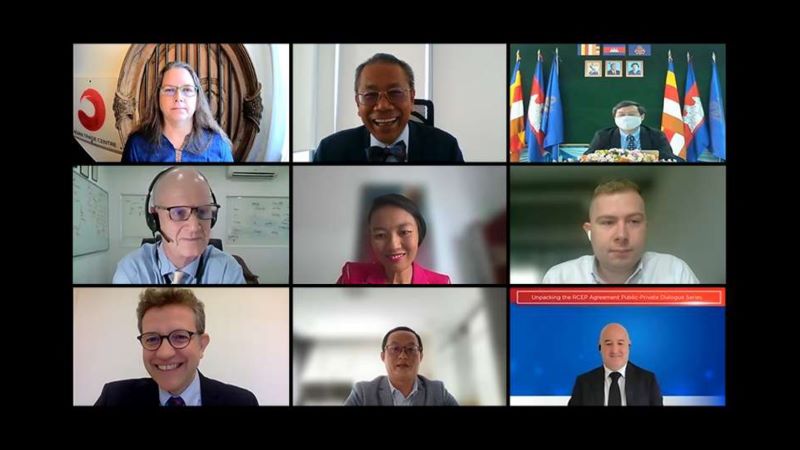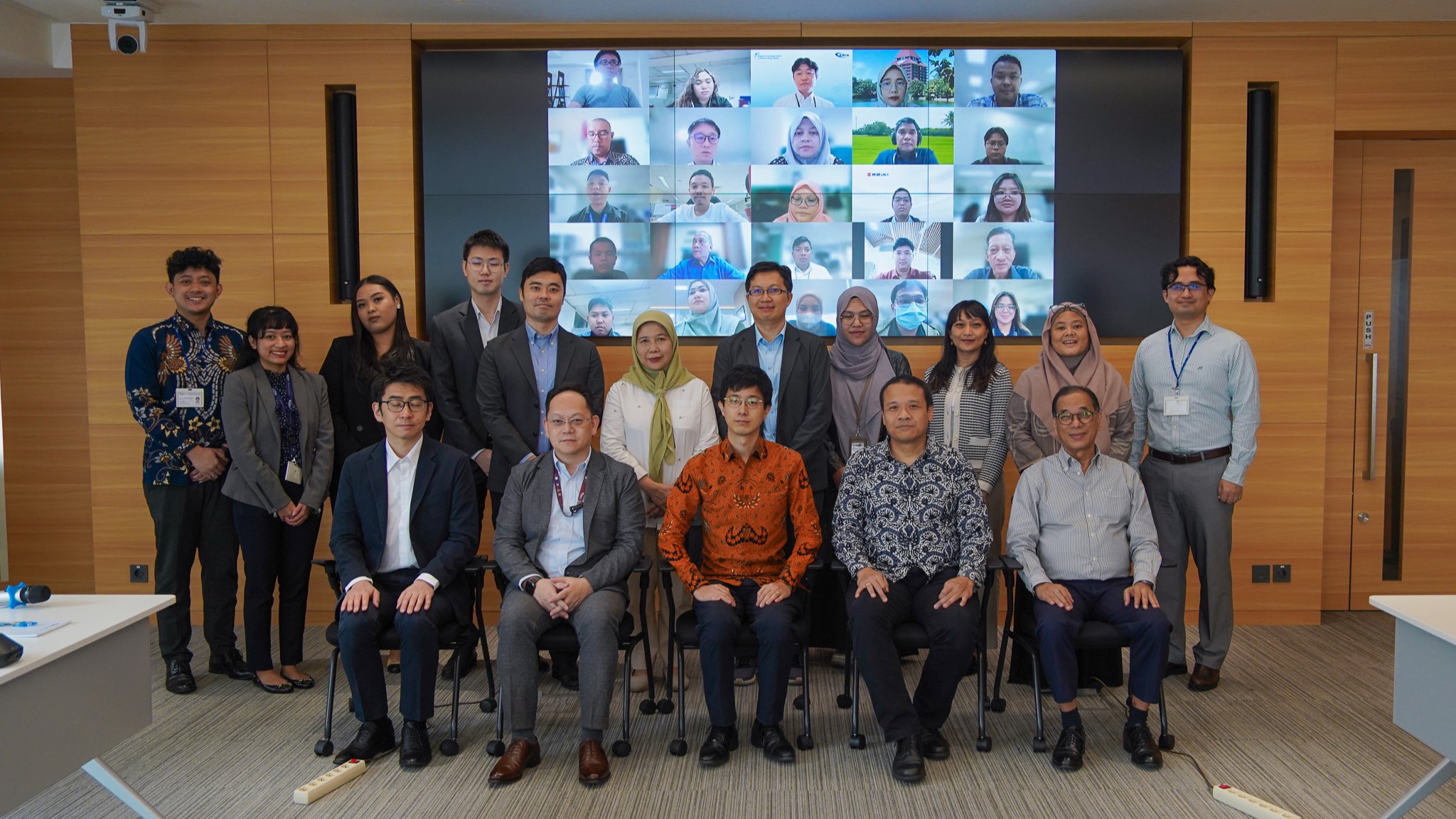RCEP Trade in Services and What They Mean for Cambodia
Date:
23 May 2022Category:
NewsTopics:
Cambodia, Capacity Building, RCEPShare Article:
Print Article:
Jakarta, 23 May 2022: The Regional Comprehensive Economic Partnership (RCEP) agreement is now in force for 13 of its 15 signatory states. Chapter 8 of RCEP, focusing on Trade in Services, opens up professional services, financial services, and telecommunication services. It also allows for mutual recognition of professional qualifications, with obligations and frameworks for increased cooperation. This is in a sector that has seen the largest recipient of foreign direct investment (FDI) across the ASEAN Member States (AMS) over the past 15 years, with its 38 -69% contribution of Gross Domestic Product for AMS.
Co-organized by ERIA’s Capacity Building Programme and the Ministry of Commerce, Cambodia, this third Public-Private Dialogue in the ‘Unpacking the RCEP Agreement: Trade in Services and What They Mean for Cambodia’ series was held online on 23 May. With over 170 participants, the webinar discussed key strategies to unlock the full potential of RCEP by understanding the opportunities and challenges of services in Cambodia with trade experts, the private sector, and government.
The webinar was opened by H.E. SIM Sokheng, Secretary of State, Ministry of Commerce. He noted that with the emergence of RCEP, Cambodia’s plan to leverage its businesses participation in the trade in services. He hoped that this workshop would support a better understanding of the challenges currently faced by the private sector to unlock Cambodia’s full potential. He highlighted that the private sector participation in RCEP will determine the success of RCEP’s implementation amongst the participating countries.
The first session, moderated by Sven Callebaut, International Trade Consultant, set the scene for the RCEP Trade in Services Provisions. Dr Deborah Elms, Executive Director of the Asian Trade Centre, highlighted the importance of RCEP provisions for providing more certainty and transparency in rules for services’ firms enabling them to leverage their cross-border businesses in the region. She further explained the urgency for officials to undertake transposition from the positive to the negative list by removing some trade restrictions and supporting trade in services amongst RCEP countries.
In the second session, the private sector discussed opportunities and challenges for the services provisions of RCEP. Mr Kay Lot, Business Owner of QED, YellowTree Co. Ltd and Independent Director of ACLEDA, BSP Finance Cambodia, discussed the pivotal role of robust digital technology adoption in Cambodia and how it has influenced the shift of business sectors as well as consumer behaviour in the market. He explained that there is also a need to improve digital inclusion in the public policy space, to provide more internet access and minimise potential risks from artificial intelligence.
Ms Phurik Ratana, private sector and investment specialist, discussed recent trends in the Cambodian market and its openness for investment. She noted the growing competition, especially in the Cambodian financial services sector with its 54 commercial banks. She also noted the importance of providing greater access of information to relevant players for maximising RCEP utilisation. Mr Harrison White, CEO, Cambodia Investment Review (CIR Media) discussed the importance of providing transparent regulations to allow service sector companies in Cambodia to grow. He also noted the importance of qualified human resources to support a competitive workforce. Mr Ashley Irving, Principal, IDP Cambodia and Vice-President of Auscham Cambodia, added the need to narrow the skills gap to develop the correct human resources to enter the workforce, emphasising the importance of education and a need for strengthening the technical and vocational educational training (TVET).
H.E. SOK Siphana, Senior Advisor to the Government of Cambodia, summarised the key discussions of the day’s Dialogue. He highlighted the importance of the transfer of knowledge and technology to leverage Cambodia’s participation in the global market. He also noted the importance of education for human resource development, ensuring the provision of more skilled labour in the Cambodian workforce. He acknowledged the importance of capacity building activities to provide technical assistance to support the private sector to benefit from RCEP’s Services chapter.
Opening comments for the Dialogue were given by Mr Jeremy Gross, the Director of Capacity Building. The webinar was supported by the Government of Australia through the Department of Foreign Affairs and Trade.







